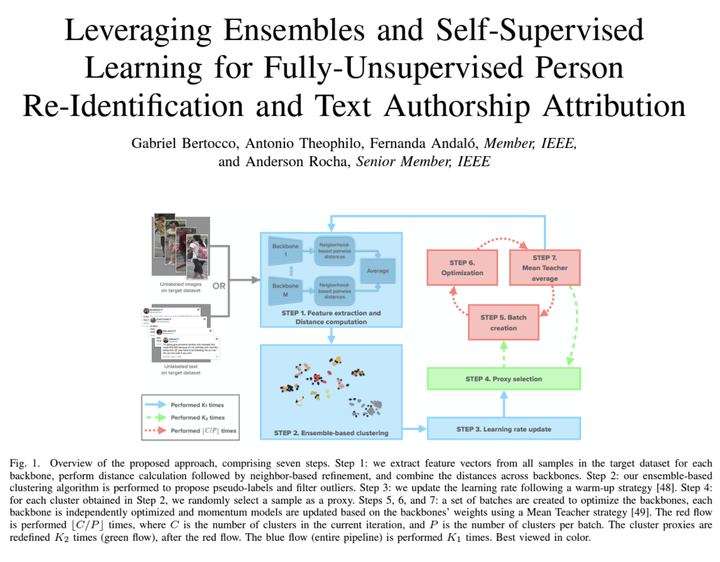Leveraging Ensembles and Self-Supervised Learning for Fully-Unsupervised Person Re-Identification and Text Authorship Attribution

Learning from fully-unlabeled data is challenging in Multimedia Forensics problems, such as Person Re-Identification and Text Authorship Attribution. Recent self-supervised learning methods have shown to be effective when dealing with fully-unlabeled data in cases where the underlying classes have significant semantic differences, as intra-class distances are substantially lower than inter-class distances. However, this is not the case for forensic applications in which classes have similar semantics and the training and test sets have disjoint identities. General self-supervised learning methods might fail to learn discriminative features in this scenario, thus requiring more robust strategies. We propose a strategy to tackle Person Re-Identification and Text Authorship Attribution by enabling learning from unlabeled data even when samples from different classes are not prominently diverse. We propose a novel ensemble-based clustering strategy whereby clusters derived from different configurations are combined to generate a better grouping for the data samples in a fully-unsupervised way. This strategy allows clusters with different densities and higher variability to emerge, reducing intra-class discrepancies without requiring the burden of finding an optimal configuration per dataset. We also consider different Convolutional Neural Networks for feature extraction and subsequent distance computations between samples. We refine these distances by incorporating context and grouping them to capture complementary information. Our method is robust across both tasks, with different data modalities, and outperforms state-of-the-art methods with a fully-unsupervised solution without any labeling or human intervention.